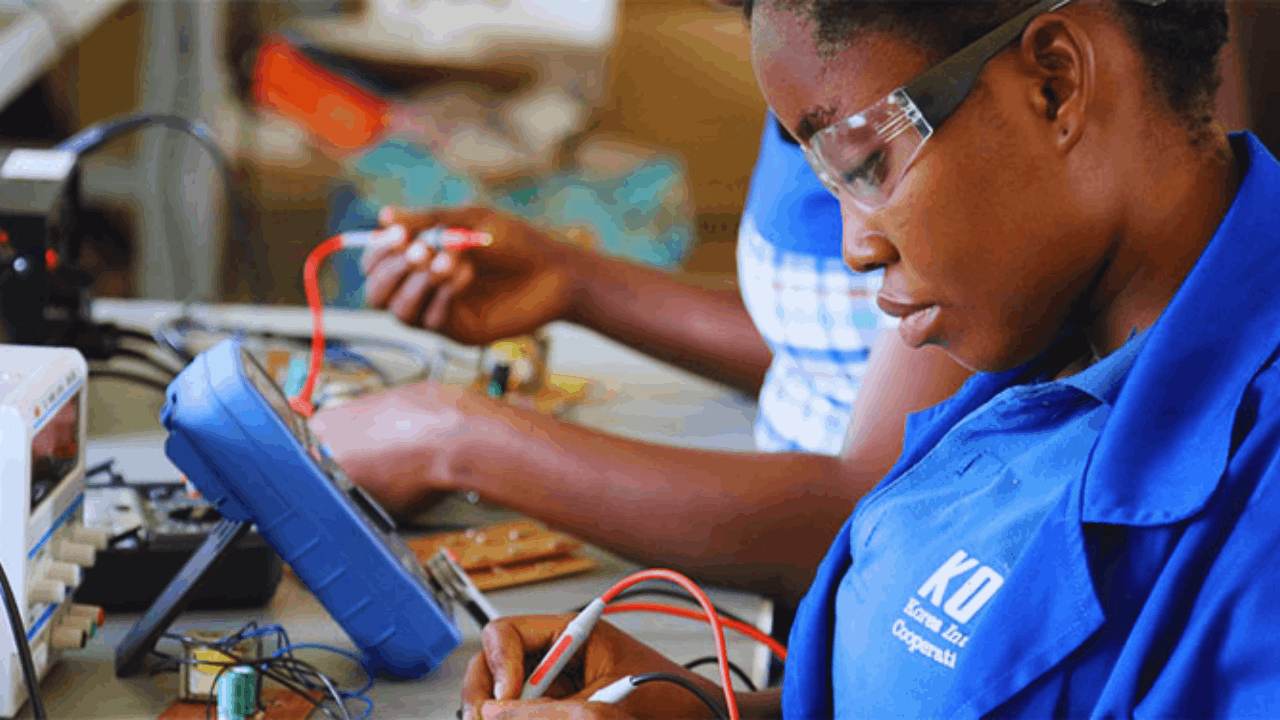The global labor market is creating more space for international talent, especially in sectors with critical worker shortages. French-speaking Africans now have greater access to structured work abroad programs that offer legal employment.
These programs match qualified individuals with jobs in healthcare, construction, agriculture, and hospitality. They also provide training, housing, and visa support to ensure a smooth relocation.
As demand grows in Europe, Canada, and parts of Asia, so do opportunities for jobs abroad for French-speaking Africans. This guide will help you understand the job types, benefits, application process, and where to find verified openings.

Growing Demand for Francophone Workers Globally
Countries with labor shortages are actively recruiting foreign workers who can fill essential positions. French-speaking workers are particularly valued in countries with bilingual populations or tourism industries.

Nations like Canada, Belgium, France, and parts of the Middle East often require staff who can communicate in French.
This makes French-speaking Africans ideal candidates for both customer-facing and internal support roles. Their language skills offer a competitive advantage in a global labor market.
Economic Needs and Workforce Gaps
As domestic labor forces shrink, many nations rely on immigration to meet productivity goals. Employers in health care, logistics, and manufacturing are especially affected.
Francophone workers are often seen as disciplined, adaptable, and multilingual. These qualities make them attractive hires.
Some countries have already formalized recruitment agreements with African nations.
Global French Language Advantage
French is spoken across Europe, Africa, and Canada, making it a strategic asset in hiring. Companies serving French clients or regions actively seek bilingual applicants.
Language familiarity enhances service quality and training efficiency. This demand extends beyond traditional French-speaking nations. Even Asian countries with international businesses seek French-speaking staff.
Available Jobs in Work Abroad Programs
Work abroad programs focus on industries where consistent labor is needed year-round or seasonally. These include both skilled and entry-level positions in sectors like agriculture, hospitality, manufacturing, education, and caregiving.

French-speaking Africans can find work regardless of their formal education, as many jobs offer full training.
These roles also create opportunities to develop new skills that improve future employability. Employment contracts typically range from six months to two years.
Agriculture and Seasonal Harvesting
Seasonal farm work is one of the most accessible roles for first-time workers. Applicants typically help with planting, sorting, packaging, and harvesting fruits and vegetables.
European countries like France and Italy offer short-term contracts in rural areas. These jobs come with housing and structured daily routines.
Although physically demanding, they are popular entry points into work abroad programs.
Hotel and Resort Staff
Hospitality roles offer steady employment in cities and tourist destinations. French-speaking workers are needed for reception, cleaning, kitchen help, and customer service.
Many positions are available in Canada, Switzerland, and the UAE. Employers prefer applicants who can handle guests in more than one language. On-the-job training is often provided.
Healthcare and Elderly Care
There is a global shortage of caregivers and nursing aides. Some programs train applicants to assist the elderly in homes or clinics.
French fluency helps in regions where older populations speak little or no English. Care jobs often include food preparation, hygiene support, and companionship. These roles are both rewarding and in high demand.
Construction and General Labor
Labor jobs in construction require stamina and attention to safety. Employers look for workers to assist in scaffolding, masonry, and finishing work.
These positions are well-paid and available in countries with large infrastructure projects. Workers usually receive uniforms, meals, and health insurance. Language barriers are less of a concern in these environments.
Manufacturing and Factory Jobs
Factories in Europe and Asia offer jobs in packaging, quality control, and machine operation. Many roles only require basic literacy and the ability to follow safety instructions.
Workers are trained on-site to meet production standards. French-speaking staff are often placed in multicultural teams. Schedules follow rotating shifts with mandatory breaks.
Maritime and Fishing Industry
Jobs in fish processing, cleaning, and shipping are available in countries like Norway and Japan. These roles require good physical health and teamwork.
While challenging, they offer strong pay and benefits. Workers are given protective gear and training in hygiene standards. Contracts are usually seasonal but renewable.
Warehouse and Logistics Roles
Logistics jobs include sorting, labeling, and moving packages in large storage centers. These positions are in demand due to the growth of online shopping and global trade.
Workers need to stay alert, organized, and efficient. Training is provided for equipment use and safety compliance. Language barriers are less of a concern in this setting.
Benefits of Working Abroad
One of the major benefits of work abroad programs is earning a stable income in a regulated environment.

In many cases, wages are significantly higher than in the applicant’s home country. Workers can support their families through remittances while saving for their own futures.
These jobs also come with benefits such as healthcare, training, and housing support. It’s an opportunity to grow both professionally and personally.
Financial Stability and Remittances
Earnings from international jobs can significantly improve a worker’s financial situation. Many workers send part of their income back home.
This supports household needs and helps with education or investments. Even entry-level jobs abroad pay better than similar roles locally. Over time, savings can build financial security.
Life Experience and Self-Development
Living abroad fosters independence and responsibility. Workers gain new cultural perspectives and adapt to diverse environments.
These experiences improve soft skills like problem-solving and communication. The exposure also builds long-term confidence. Many workers return home with broader perspectives and career plans.
Access to Legal Protections and Support
Foreign workers benefit from labor rights in most host countries. These include minimum wage laws, healthcare access, and safety training.
Contracts offer structure and reduce exploitation risk. Workers also get support from embassies or labor unions. These safeguards make work abroad programs safer and more appealing.
Where to Find Verified Job Listings
Finding a reliable job abroad starts with knowing where to look. Government-backed job portals, licensed recruiters, and international organizations are the most trusted sources.

These platforms list jobs with visa sponsorship and proper legal backing. Applicants should avoid social media listings or unofficial groups unless verified by embassy channels. Working with the right agency can save time and prevent scams.
Recruitment Agencies in Africa
Licensed recruiters often collaborate with foreign employers. They help applicants prepare resumes, complete paperwork, and attend interviews.
Many also offer language courses and cultural training. It’s important to verify the agency’s registration status. Reputable agencies post updated job offers and provide clear timelines.
International Job Portals
Online platforms like Job Bank Canada, EURES, and TEFL post thousands of listings.
These portals let you filter by language, location, and job category. Some include employer ratings and visa guidance.
They are accessible and updated frequently. Always read job descriptions carefully before applying.
Job Fairs and Embassy Announcements
Some embassies organize recruitment events in African cities. These job fairs bring employers and job seekers together.
Attendees can submit applications and attend info sessions. Events are advertised through embassy websites and the radio. They are an excellent opportunity for direct networking.
What You Need to Qualify
Eligibility for work abroad programs varies depending on the country and job type.

In general, applicants must be in good health, have no criminal record, and hold a valid passport. Some positions require educational certificates, while others only need basic literacy.
Language skills—especially French and basic English—are a major advantage. Being open to relocation and adapting to new environments is essential.
Document Preparation and Certification
Applicants should gather key documents such as a valid ID, an updated resume, and school certificates. Some jobs may require translated or notarized copies.
Medical certificates and police clearance are also standard. Keeping multiple copies of documents is recommended. Preparation speeds up the application process.
Language and Training Expectations
Many programs look for basic communication ability in English or the local language. French remains an asset, but workers may receive training in a new language.
Some programs include free language courses before departure. These skills help with safety, teamwork, and daily life abroad. Language confidence also improves retention and job satisfaction.
How to Apply for Jobs Abroad
Start by researching trusted platforms and selecting job openings that match your profile.

Once you find a suitable program, gather your documents, including a passport, a resume, a medical certificate, and proof of language skills.
You’ll need to fill out application forms and sometimes attend a virtual or in-person interview.
If selected, you will sign a contract and begin visa processing. The entire process may take several weeks to complete.
Application Timelines and Deadlines
Most job programs operate on strict schedules. Missing deadlines can result in missed opportunities.
Start early and follow up with recruiters on a regular basis. Use checklists to track your progress. Staying organized keeps your application on track.
Visa and Travel Coordination
Once selected, you’ll need to apply for a work visa. Requirements vary by country and job type. Recruiters or employers will usually provide instructions.
After visa approval, you will receive travel information. Arrive early to attend orientation and job briefings.
Conclusion
Work abroad programs offer a stable path to legal employment and international experience. French-speaking Africans are in demand across multiple countries and industries.
These programs provide income, long-term growth, and exposure to new environments. With proper preparation, applicants can secure roles that improve their future.











